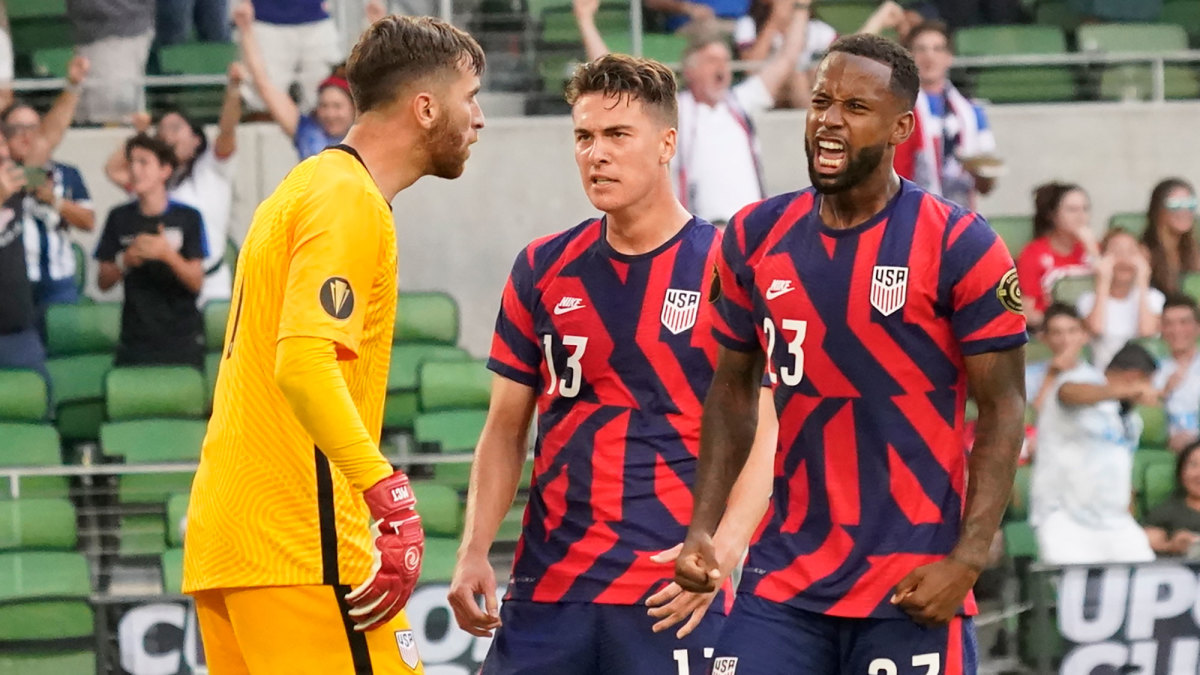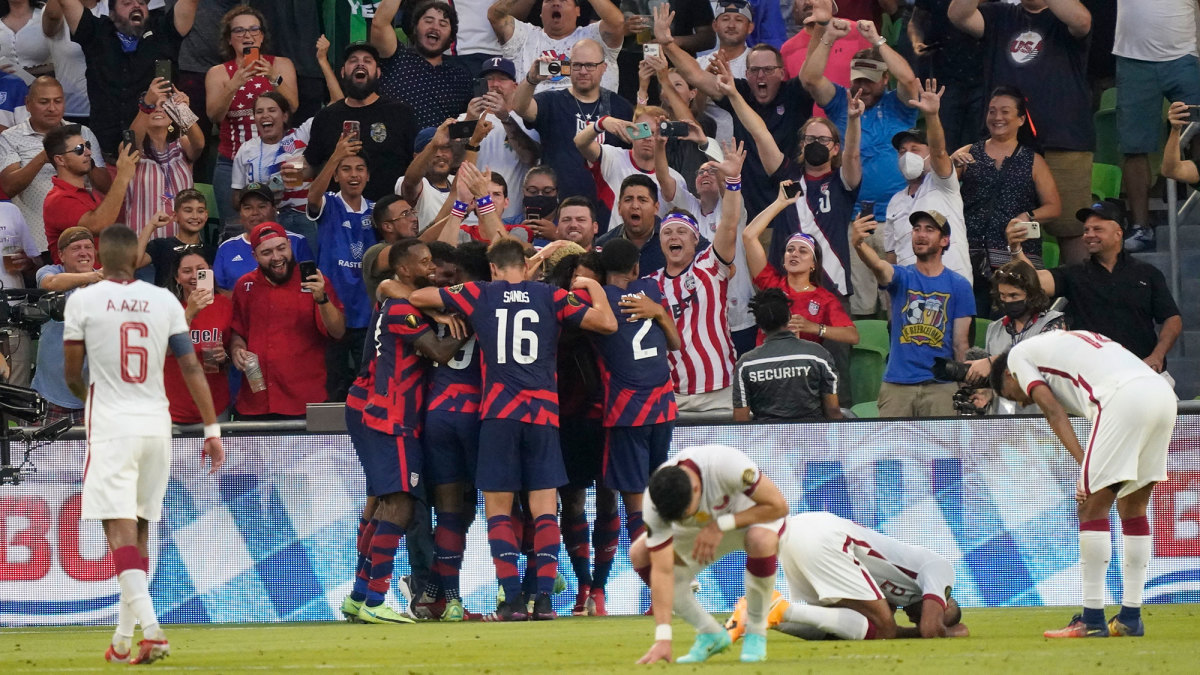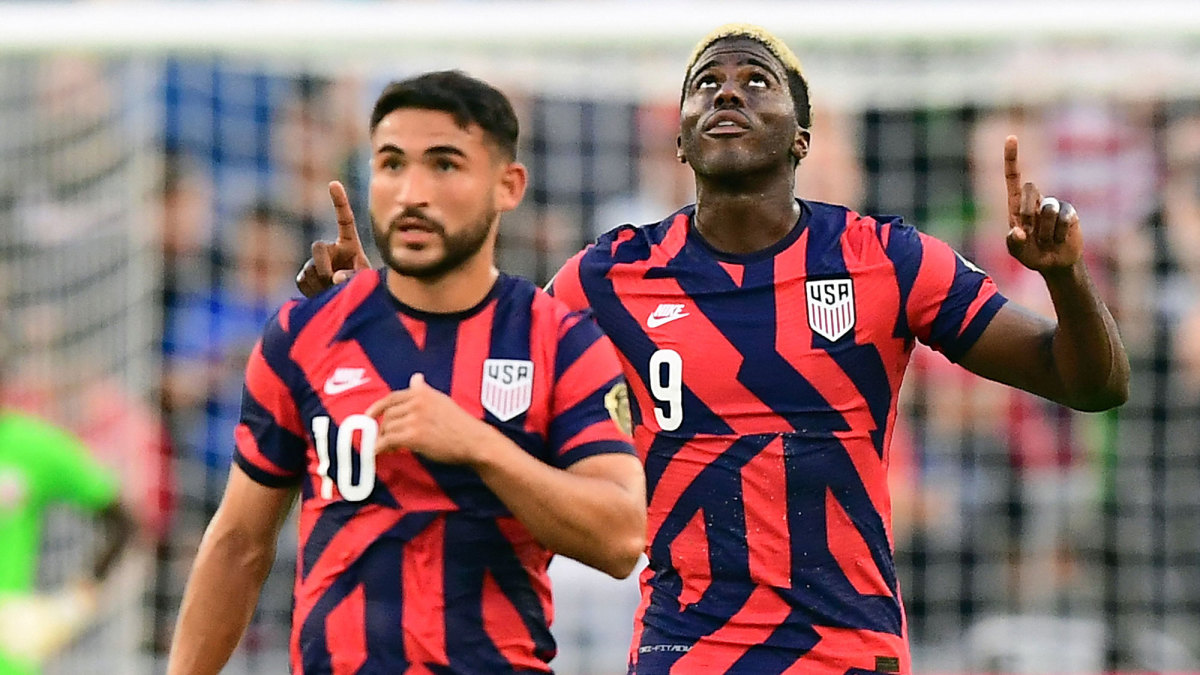USMNT Gives Qatar a Lesson in Concacaf Dark Arts to Reach Gold Cup Final

After a couple years of sponsorship and partnership and a couple weeks of competition, Qatar got its proper Concacaf baptism on Thursday night in Austin, Texas.
The Gold Cup guest team, invited to this month’s confederation championship thanks to a wide-ranging relationship between the regional governing body and the influential 2022 World Cup host, could’ve been leading. In fact, it should’ve been leading a young U.S. side following a dominating first half.
But their semifinal somehow still was level when, after a lengthy VAR intervention, Qatar was awarded a penalty as the hour mark approached. The referee had made his decision, but U.S. midfielder Kellyn Acosta wasn’t going to let it go. He argued. He gestured. He stood right behind Qatar’s Hassan Al Haydos, the visitors’ most experienced player, as he waited and waited for permission to kick. Even after Acosta was steered from the penalty area, he continued his histrionics, increasing the collective commotion and involving several other players in shouting and shoving. Multiple minutes elapsed. Al Haydos was rattled, and the veteran with 144 caps curled his penalty meekly over the bar.
“It shows how much he wanted to win,” U.S. coach Gregg Berhalter said of Acosta’s intervention.

Welcome to Concacaf, and thanks for coming. Acosta’s brilliant bit of gamesmanship—the sort of dark arts that have bedeviled the U.S. against other regional foes—was the first turning point at Q2 Stadium. Qatar had done everything right, but it hadn’t been rewarded. These games require more, and the Asian champs were shaken. Berhalter then unleashed a wave of subs, the U.S. found another gear and Gyasi Zardes did the honors, scoring the 86th-minute goal that sent the Americans to another 1-0 victory—their fourth of the tournament—and Sunday’s Gold Cup final in Las Vegas. They’ll play Mexico, which beat Canada, 2–1, later Thursday in Houston on Hector Herrera's goal deep into second-half stoppage time.
It will be the U.S.’s third straight Gold Cup final, its record 12th and perhaps its most unlikely. The odds were against the Americans right from the tournament’s start because of Berhalter’s decision to bring a younger, untested squad while resting his European A-listers. And they were still against the U.S. on Thursday. Qatar was the Gold Cup’s highest scoring team—a cohesive, experienced force whose players averaged at least 50 more caps than the U.S. A Maroon victory wouldn’t have been an upset and, during the first half, it seemed inevitable. Starting the same 4-3-3 that took the field against Jamaica in Sunday’s quarterfinal, the U.S. created next to nothing and was in frequent trouble in back.
Goalkeeper Matt Turner made all the difference, conjuring a pair of finger-tip saves two minutes apart in the first half that kept the match scoreless.
A major reaction from Matt Turner to keep out the long, deflected shot and save James Sands from an own goal. Qatar coming right at the #USMNT in the #GoldCup21 semis
— SI Soccer (@si_soccer) July 29, 2021
(via @TUDNUSA) pic.twitter.com/w3ds9RjAZx
Matt Turner again! The #USMNT GK came ready to play tonight. Point-blank robbery 😱
— SI Soccer (@si_soccer) July 29, 2021
(via @TUDNUSA) pic.twitter.com/rsep2WYD1W
Several other Qatari shots were wayward. Meanwhile, despite Qatar’s relatively low pressure, the Americans did little with their advantage in possession and struggled to connect the forwards to the midfield, break defenders down 1-v-1 or play passes in behind.
But what Berhalter’s young team might lack in experience and quality in certain spots, it more than makes up for in resilience and an uncanny refusal to yield. They can struggle. They can be outplayed. But they’ve yet to fold, and they’ve yet to be beaten. On Thursday, they hung on just long enough for Acosta to get inside Qatar’s collective head and for some fresh legs to turn the tide. It worked against Jamaica, as Cristian Roldan set up Matthew Hoppe’s winner. And it changed the game in Austin, as Roldan, Zardes, Nicholas Gioacchini and Eryk Williamson helped the U.S. finally put a tiring Qatar on the back foot. The goal wasn’t necessarily deserved when assessing the match as a whole, but it still was no surprise when it came. The Americans were the better team late.

“Things just weren’t going our way and we battled back. I think that’s impressive,” Berhalter said. “What I’d say, and I’ve said it before, is how supportive this group is of each other and it really is the next-man-up mentality, and that’s refreshing to see.”
Zardes’s goal began with an aimless Qatari pass out of the back that was intercepted in midfield. Gioacchini played a give-and-go with Williamson and managed to outwit three Qatari defenders before slipping a cross toward the center. Zardes was there to slide the ball home. The three substitutes had finished it off. But according to Zardes, the whole team won it.
“It was a tight game,” the Columbus Crew striker said. “They’re a great team. But our starters did a phenomenal job at wearing them out, holding the ball and trying to create opportunities to where when the subs came in, we were able to make a difference because our starters tired them out.”

Berhalter said, “That’s two games in a row that we felt Gyasi had a big impact. I know every player wants to be on the field and wants to be able to perform. We can only pick 11. Decisions like that, you test a player. … For Gyasi, again, he’s the ultimate team player. He supports the whole team and all he wants is for the group to win. He came in and made a big impact and that’s what type of guy he is. His work rate is always there. He’s always dangerous with chances and he showed it again today.”
That knack for seeing the bigger picture, sticking together and staying in a game, not to mention the ability to make a play when it counts, has been enough. This was the third-youngest side the U.S. had ever started in any knockout round match—just a few days older than the one that kicked off against Jamaica. Both games hung in the balance late. Both games could’ve been lost. But the U.S. persevered, and is now 90 minutes away from a seventh, yet somehow improbable, continental championship.
“This is a resilient group. For us to battle back like that and get the win shows a lot about he character of this team,” Berhalter said. “We’re not done. That was the message to the team. It’s nice to make the final, but we want to win the final. Our No. 1 goal is to win the Gold Cup, and we said that before the Gold Cup and we’ll say it again.”
More Soccer Coverage:
